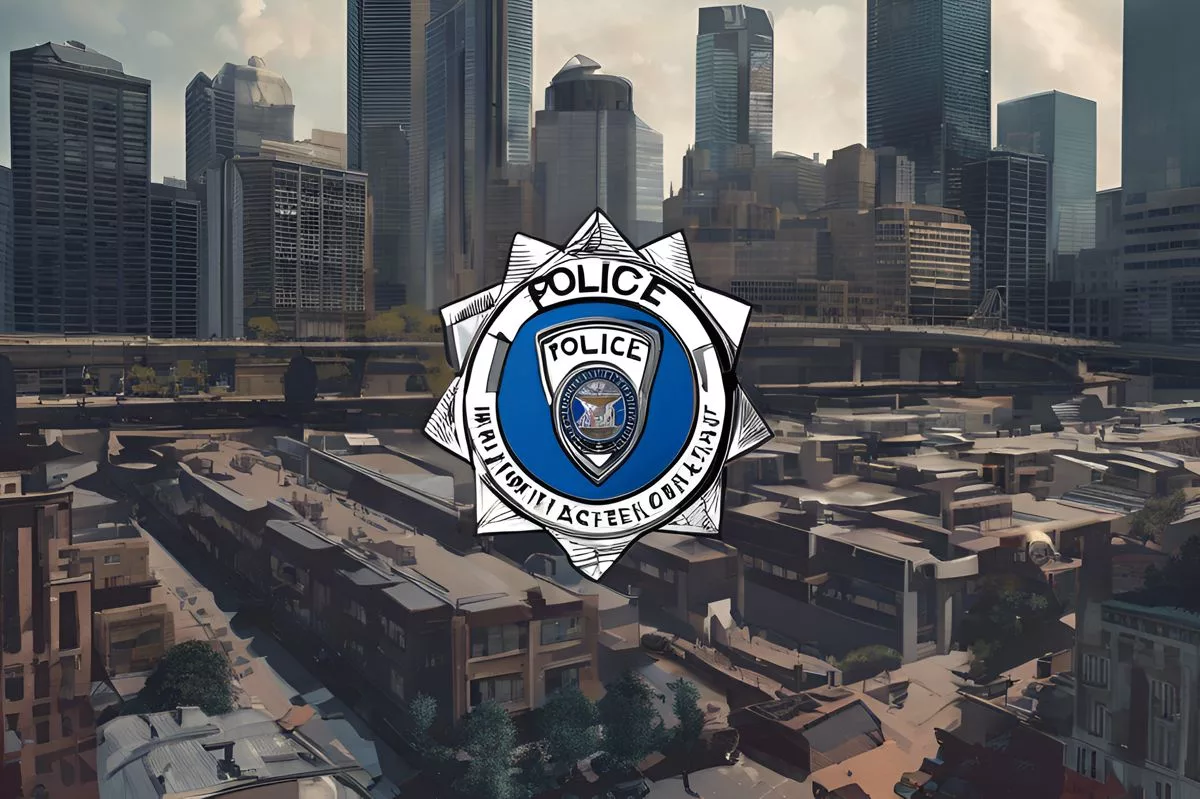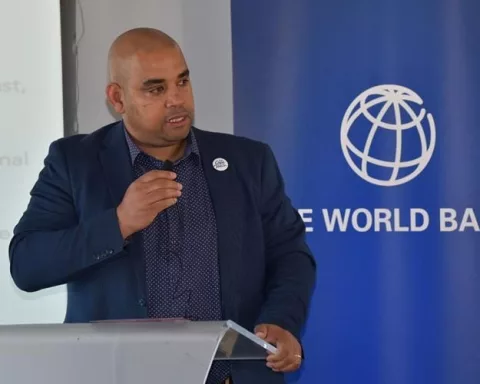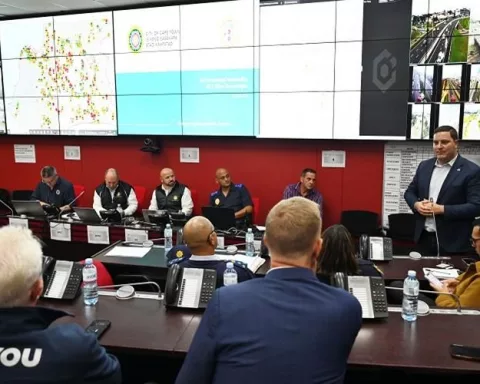Cape Town’s Mayor Geordin Hill-Lewis is pushing for the devolution of criminal investigation powers for local municipal police officers to combat gang-related, firearms, narcotics, and blackmail crimes. Hill-Lewis has already initiated a conversation with Police Minister Senzo Mchunu, who has expressed optimism about the potential legislative amendment. The mayor is also calling for intervention against the construction mafia and blackmailer gangs in Cape Town, with Public Works and Infrastructure Minister Dean Macpherson planning to meet with him to discuss the problem. Hill-Lewis’s efforts signify an unyielding offensive against crime in the city.
What is Cape Town Mayor’s Push for Devolution?
Cape Town’s Mayor Geordin Hill-Lewis has called for devolution of criminal investigation powers to equip officers with the capacity to construct prosecution-ready case dockets and obtain convictions, particularly in relation to gang-related, firearms, narcotics, and blackmail crimes. Hill-Lewis has already begun a conversation with Police Minister Senzo Mchunu and expressed his positivity regarding the potential legislative amendment. The mayor is also addressing the blackmailer and construction mafia concerns in Cape Town, with Public Works and Infrastructure Minister Dean Macpherson announcing his plans to meet the mayor to discuss the construction mafia problem.
The Call for Devolution
In a daring plea for devolution, Cape Town’s Mayor Geordin Hill-Lewis recently outlined his local government’s objectives at a council meeting. Among his main points was the need for municipal police to acquire the ability to probe crime. Hill-Lewis’s advocacy agenda included other key elements such as transferring passenger rail control to the city, utilizing national mega-properties for reasonably priced housing, boosting social housing subsidies, putting a stop to grants cuts, and simplifying bureaucratic procedures to stimulate economic growth.
Hill-Lewis especially underscored the necessity for the devolution of criminal investigation powers. He argued that this increase in authority would equip officers with the capacity to construct prosecution-ready case dockets and obtain convictions, particularly in relation to gang-related, firearms, narcotics, and blackmail crimes. He passionately stated, “Our sole objective is to aid in the fight against crime. We need to consolidate resources and provide our officers with the extra enforcement powers necessary to accomplish more.”
The Dialogue with the Police Minister
In the aftermath of these statements, Hill-Lewis disclosed that he had already begun a conversation with Police Minister Senzo Mchunu, conferring with him shortly after his council address. Hill-Lewis portrayed the meeting as both constructive and fruitful, expressing gratitude for the minister’s prompt response.
Hill-Lewis’s recounting of the interaction conveyed his astonishment at the national government’s proactive involvement. He said, “I informed him that I’d never had such an engaging meeting with the national government, certainly not with the police minister.” The mayor also voiced his positivity regarding the potential legislative amendment, commenting, “He conveyed his optimism about the legislative amendment. I’m extremely hopeful based on that.”
Minister Mchunu’s Response and Engagement
Echoing the mayor’s views, Mchunu verified that he had congregated with provincial and city representatives to discuss Cape Town’s widespread crime problem. Regarding the devolution of powers, the minister emphasized a focused approach on combating violent and intrusive crimes, including homicide, abduction, blackmail, assault, carjacking, and burglary. By promising ongoing interactions with the city and the Western Cape government, Mchunu indicated a readiness to investigate solutions to the city’s crime issue.
Tackling Extortion and Construction Mafia
Beyond policing concerns, Hill-Lewis also highlighted the importance of addressing the blackmailer and construction mafia concerns in Cape Town during his meeting with Mchunu. The mayor firmly stated, “I genuinely believe this requires a Cabinet-level intervention and a national task force to counteract the construction mafia and blackmailer gangs.”
In response to this, Public Works and Infrastructure Minister Dean Macpherson announced his plans to meet the mayor to discuss the construction mafia problem. The minister praised the mayor’s stance against the mafia, acknowledging his efforts to strengthen law enforcement to confront them.
The Future of Cape Town’s Fight Against Crime
In a city beset by widespread crime, Hill-Lewis’s brave call for devolution and his endeavors to directly engage with nation-wide figures like Mchunu and Macpherson signify an unyielding offensive against crime. While the outcomes of this effort remain uncertain, it is evident that under Mayor Hill-Lewis’s leadership, the City of Cape Town is making determined strides to overcome these hurdles.
1. What is Cape Town Mayor’s Push for Devolution?
Cape Town’s Mayor Geordin Hill-Lewis has called for devolution of criminal investigation powers to equip officers with the capacity to construct prosecution-ready case dockets and obtain convictions, particularly in relation to gang-related, firearms, narcotics, and blackmail crimes.
2. What other issues is the Mayor addressing in Cape Town?
The mayor is also addressing the blackmailer and construction mafia concerns in Cape Town, with Public Works and Infrastructure Minister Dean Macpherson announcing his plans to meet the mayor to discuss the construction mafia problem.
3. What is the purpose of the devolution of criminal investigation powers?
The devolution of criminal investigation powers would equip officers with the capacity to construct prosecution-ready case dockets and obtain convictions, particularly in relation to gang-related, firearms, narcotics, and blackmail crimes.
4. Who has Mayor Hill-Lewis initiated a conversation with regarding the devolution of powers?
Mayor Hill-Lewis has already initiated a conversation with Police Minister Senzo Mchunu, who has expressed optimism about the potential legislative amendment.
5. Is there ongoing engagement between the city and the Western Cape government regarding crime issues?
Yes, there is ongoing engagement between the city and the Western Cape government regarding crime issues.
6. What is the future of Cape Town’s fight against crime under Mayor Hill-Lewis’s leadership?
Mayor Hill-Lewis’s brave call for devolution and his endeavors to directly engage with nation-wide figures like Mchunu and Macpherson signify an unyielding offensive against crime. While the outcomes of this effort remain uncertain, it is evident that under Mayor Hill-Lewis’s leadership, the City of Cape Town is making determined strides to overcome these hurdles.












